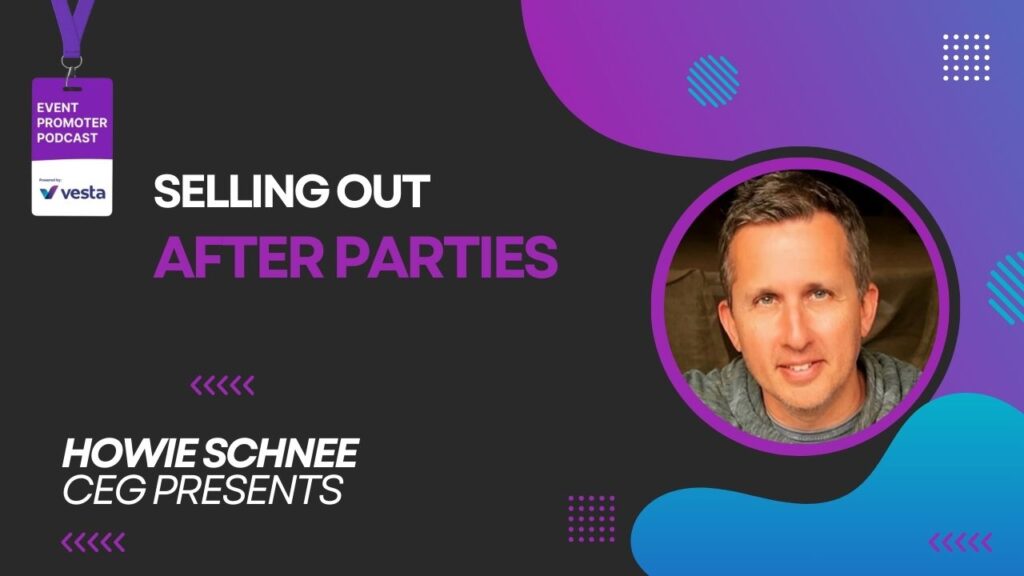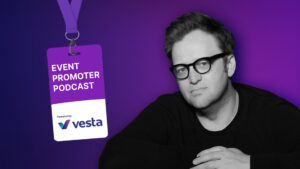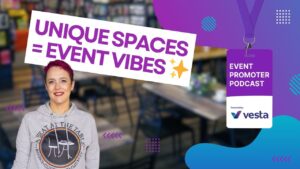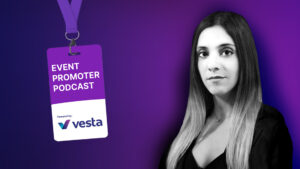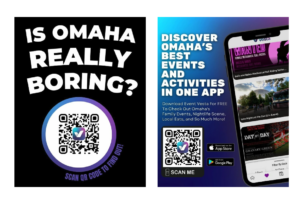Watch on YouTube | Listen on Spotify | Listen on Apple Podcasts
Howie Schnee, Co-Founder and President of CEG Presents, has been hosting wildly popular Phish After Parties in NYC since the 90’s. He’s also promoted many other After Parties in NYC, New Orleans during Jazz Fest, and elsewhere.
The concept of the After Party is a topic that comes up a lot with venues and up-and-coming promoters. Howie generously shares his insights and experience about what makes a great after party that will sell out and be… a great party.
How to Sell Out After Parties – Howie Schnee CEG Presents | Event Promoter Podcast Full Video
How to Sell Out After Parties – Howie Schnee CEG Presents
After parties are a staple of the live music scene, offering fans a chance to keep the energy going after the main event. But what does it take to make these late-night gatherings successful? Howie Schnee, co-founder of Creative Entertainment Group (CEG) and a veteran promoter with nearly 30 years of experience, shares his insights on selling out after parties.
Understanding Your Audience
One of the most crucial aspects of organizing successful after parties is knowing your target audience. Howie emphasizes the importance of understanding who you’re trying to attract. This knowledge helps in curating the right performers and creating an experience that resonates with attendees.
“It’s really important to know who that audience is that you’re trying to target,” Howie advises. “Curation is incredibly important.”
Unique Experiences Drive Ticket Sales
To stand out in the competitive after party scene, Howie recommends creating unique experiences that fans can’t get elsewhere. This approach is particularly effective when dealing with older audiences who may be less inclined to attend late-night events.
“You’ve got to make it unique,” Schnee explains. “You have to make it something that people can’t just go see at a convenient time in their hometown.”
Some ways CEG has created unique experiences include:
- Assembling one-of-a-kind collaborations (e.g., Medeski, Martin, Metzger & Cline)
- Organizing tribute shows with a twist (e.g., James Brown Dance Party featuring original band members and younger artists)
- Incorporating local elements to give events a distinct flavor
Leveraging Relationships and Partnerships
Howie highlights the importance of building and maintaining relationships within the industry. These connections can lead to exciting collaborations and help in putting together unique lineups that drive ticket sales.
“Your relationships are gonna be really important,” Schnee notes. “It’s a collaborative effort.”
For venue owners without extensive industry connections, he suggests partnering with local promoters. This collaboration can bring in expertise and potentially fill late-night slots that might otherwise go unused.
Navigating Legal Considerations
When promoting after parties associated with major acts, it’s essential to be mindful of legal considerations. It begs the question, “can you use a big band’s name for an after party?”
Schnee suggests:
- Avoid using the term “official” unless explicitly authorized
- Be prepared to adjust marketing if requested by the main act
- Consider using terms like “unofficial” to avoid potential issues
In other words: Be cool about it.
Supporting Causes and Building Goodwill
Howie shares how CEG has built goodwill with artists by supporting their charitable initiatives. For example, they donate $1 per ticket from Phish after parties to the band’s WaterWheel Foundation.
“We’ve donated quite a bit of money to them and to WaterWheel. And I feel great about that,” Schnee says.
This approach not only contributes to worthy causes but also helps maintain positive relationships with artists and their management. If the artist doesn’t have a specific charity or foundation they support, find a non-profit partner that aligns with the overall things the audience cares about.
Adapting to Different Markets
While Howie’s experience is primarily based in New York City and New Orleans, he acknowledges that promoters in smaller markets can apply similar principles. The key is to work with what’s available locally and find ways to make events unique to the area.
Conclusion
Selling out after parties requires a deep understanding of your audience, a commitment to creating unique experiences, strong industry relationships, and a willingness to adapt to different markets. By following these principles and staying true to your expertise, promoters can create successful late-night events that keep fans coming back for more.
For more insights on event promotion trends and strategies, check out Event Vesta’s 2024 Event Promotion Trends Report.
You can catch the full episode on our YouTube channel or your favorite podcast platform.
Check out some of our other podcasts and resources for event promoters below.
